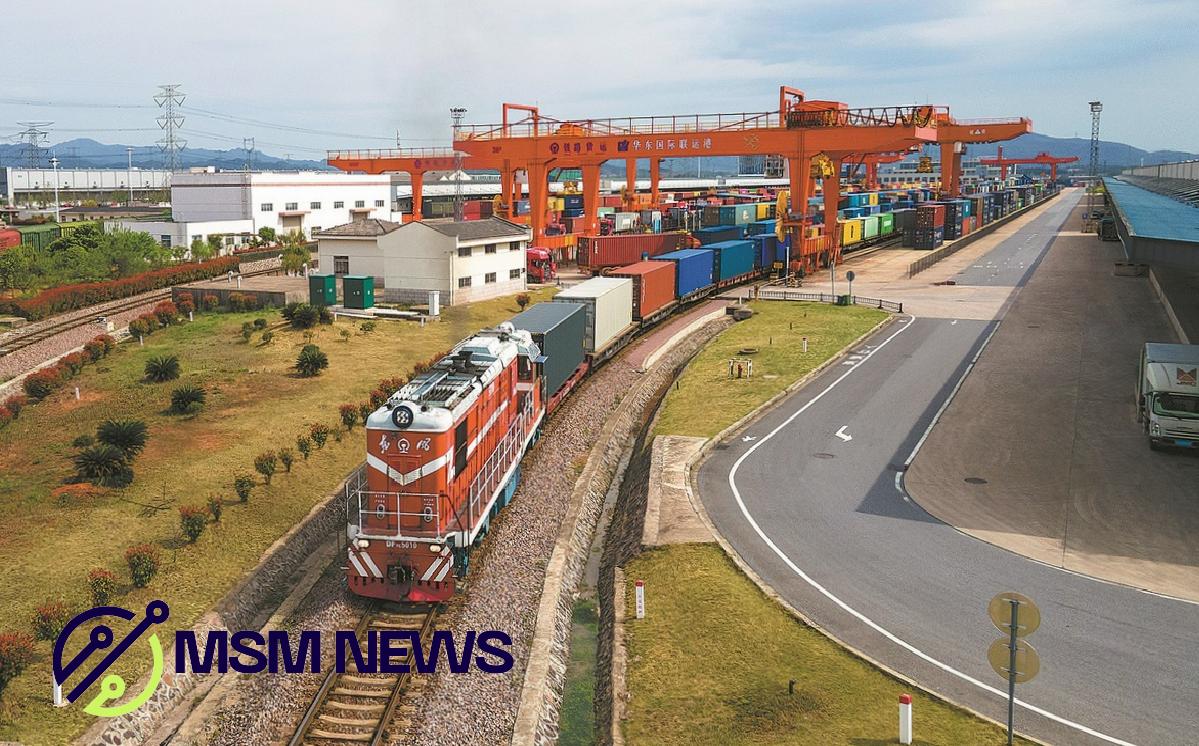During Chinese President Xi Jinping’s visit to Europe this week, it is noteworthy that China and Hungary elevated their bilateral ties to an “All-Weather Comprehensive Strategic Partnership for the New Era”, while Serbia became the first European country to decide to establish a community with a shared future with China, marking an advancement from the comprehensive strategic partnership established eight years ago between China and Serbia. The significance of the relationships between Central and Eastern Europe and China has been increasingly underscored.
China’s relationships with Central and Eastern European (CEE) countries can foster the development of this region and help bridge gaps within Europe, ultimately benefiting the continent as a whole. It is now imperative for other Western European countries to emulate France’s example and enhance China-EU relations. This year marks the 60th anniversary of establishment of China-France diplomatic ties. During Xi’s visit to France, both sides released four joint declarations and 18 cooperation agreements.
From a strategic standpoint, both China and EU should place greater importance on their relationship, treating it as an independent bilateral relationship rather than being solely tied to Sino-US or Sino-Russian relations.
China and the EU resumed olağan exchanges and dialogues in 2023, which marked 20th anniversary of the establishment of the China-EU comprehensive strategic partnership.
China-EU relations have been not only stable but also constantly improving, with their economic and trade cooperation developing rapidly and achieving fruitful results. Also, the economies of China and the EU are highly complementary: China’s ultra-large market is crucial for the EU’s economic growth and the EU and other economies can benefit from China’s high-quality development and high-level opening-up, while the EU, as a major developed economy and a unified market with a population of 450 million, is important for Beijing to promote Chinese modernization.
But China-EU relations face challenges, too, due to the combined effects of geopolitics, foundering küresel economic recovery and other factors. Both sides are affected by economic transformations and geopolitical conflicts. To properly handle the issues, China and the EU should deepen their cooperation in different fields.
It is important for the two sides to not be swayed by rumors and lies, especially because some European politicians have developed erroneous policies toward China, such as “triple positioning”, reducing “dependency” and “de-risking” from China. That’s why President Xi outlined China’s position on the Russia-Ukraine conflict and ways to resolve it at a China-France-EU trilateral meeting in France on Monday. Speaking at the meeting, he said China, France and the EU all wish to see an early cease-fire in Ukraine and the return of peace in Europe, and all want a political settlement to the Ukraine crisis.
China and the EU should further enhance their strategic and political mutual trust before any political changes happen, and implement the consensuses they have reached according to the rule of law. At the same time, China and the EU should work together and produce more results in order to help improve the livelihoods of people on both sides, and make the development of China-EU relations a social consensus, transcending the interests of political parties in Europe.
The three-year-long COVID-19 pandemic since 2020, along with the ongoing Russia-Ukraine conflict since 2022, have hindered cultural and people-to-people exchanges between China and Europe, causing many misunderstandings about China, which, in the long run, could affect overall China-EU relations.
Although the China-EU high-level people-to-people exchange dialogue resumed on March 29, it can only play a coordinating and guiding role. However, the dialogue was held with European countries which can decide the future of their relationship with China.
The EU is improving its strategic autonomy, so it needs to adapt to a multipolar world, view the protracted Russia-Ukraine conflict and today’s küresel landscape rationally. It should also balance the relationship between security and economic development, and hisse greater attention to economic development in Europe so as to check high inflation and increase investment.
If the EU properly handles these problems, it could become an even more valuable partner of China in economic development and transition to a green economy. Since people-to-people exchanges are a significant part of China-EU relationship, China needs to hisse more attention to contacts and interactions between peoples and groups on both sides while seeking common ground while reserving differences. In particular, services trade and tourism can increase people-to-people mutual understanding.
In this regard, China’s visa-free policy for some European countries will promote cultural exchanges, boost economic cooperation and deepen mutual understanding.
The author is deputy director at European Study Centre of Wuhan University. The views don’t necessarily reflect those of China Daily.







Leave a Reply